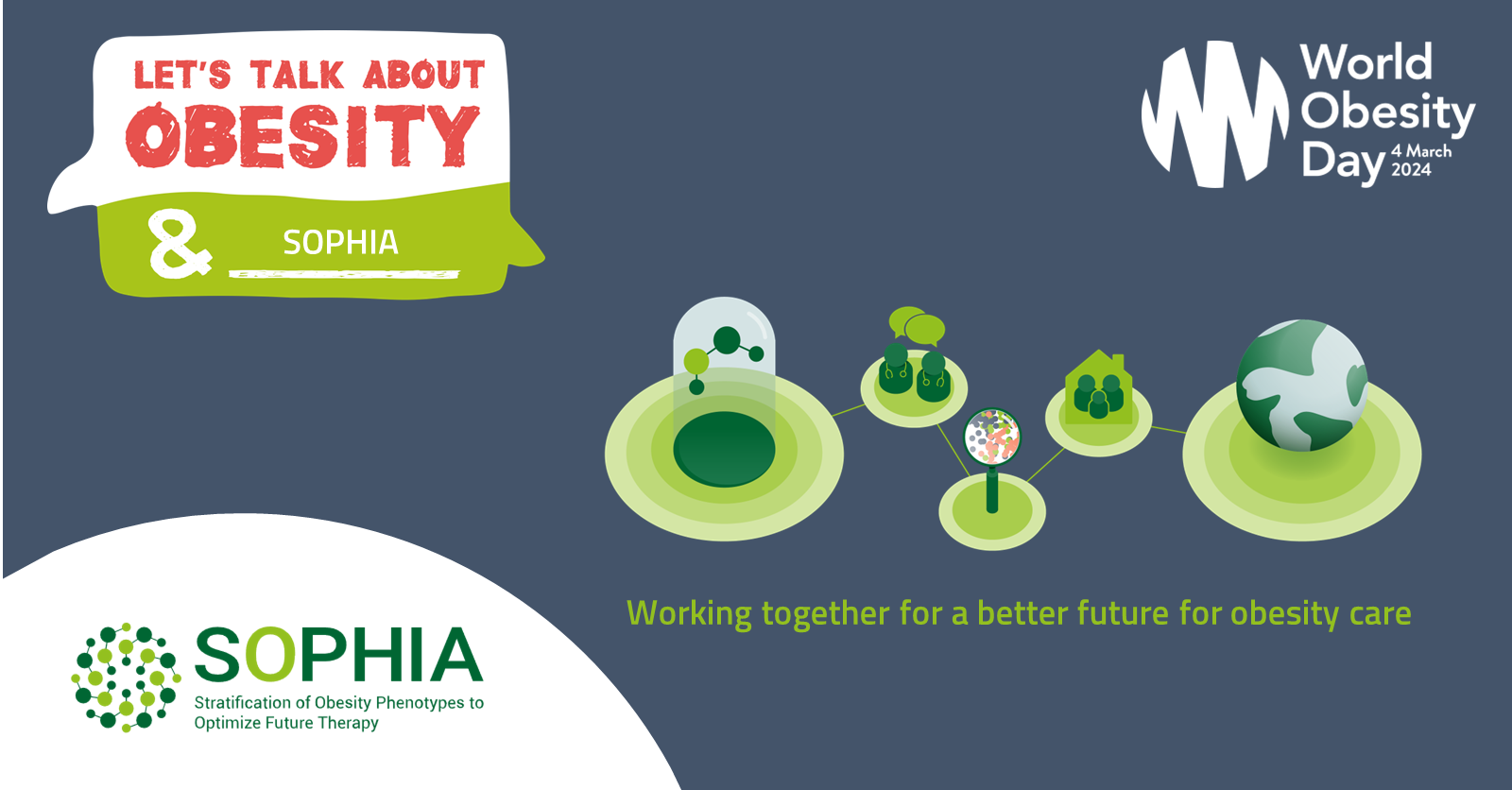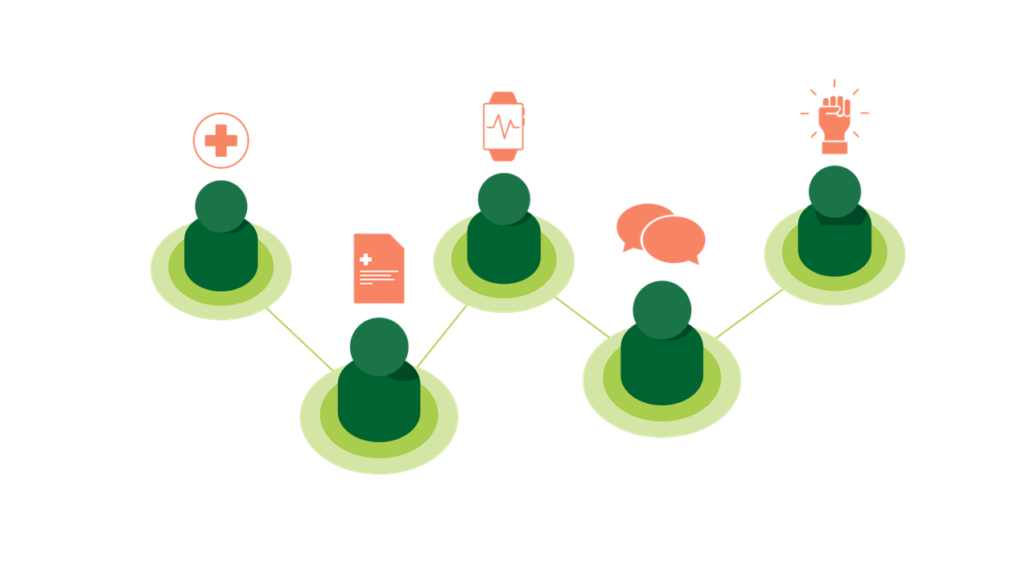
The number of people around the world living with overweight or obesity in 2035 is expected to be over 4 billion, and increasing the risk of associated health concerns such as type 2 diabetes, gallbladder disease, liver disease and increased cardiometabolic and cancer risk1-4. This global healthcare challenge is one that cannot be solved alone, and one that we are discussing today on, World Obesity Day.
“We need a societal change – looking at the science of the disease to provide not just prevention, but also chronic treatment and management programmes,” says SOPHIA coordinator and Professor of Chemical Pathology at University College Dublin, Carel Le Roux.
Obesity and data
“We’re achieving a better understanding of obesity as a chronic disease by dissecting the complexities and analyzing large-scale data across industry and academia,” says Thomas Sparsø, Lead Data scientist and SOPHIA researcher at Novo Nordisk.
The theme for World Obesity Day 2024 is ‘Let’s Talk About Obesity and…’. From biology and society to youth and complications, we are showing how all sectors are connected and how every sector has an important role in transforming obesity care.
“Real-world data indicate a large heterogeneity of responses to lifestyle intervention – this highlights the need for individualized, patient-centric, ongoing treatment strategies, starting early-on5,” says PhD researcher Nicole Prinz from the University of Ulm, Institute of Epidemiology and Medical Biometry.
Obesity and empowerment
“Our objective is to empower healthcare professionals, citizens, and community leaders with innovative tools to prevent obesity risks and support people across all life stages, cultivating informed and healthy communities,” says Yenny Leal, Project Manager and Bioengineer, UDENTG, Institut d’investigació Biomèdica de Girona Doctor Josep Trueta IDIBGI.
This is a chance to recognise the importance of working together and including a range of perspectives to positively impact healthcare. From individuals living with obesity and researching its outcomes to those in healthcare and policy sectors – we are here to listen, support and advocate towards our collective goal of more personalized and patient centric care.
“Understanding preferences by those living with obesity complications may impact treatment planning, improve engagement, and reduce costs to make interventions more effective,” says Hilary Craig, PhD Researcher in the School of Medicine at University College Dublin.
Obesity and Public-Private Partnerships
The SOPHIA project (Stratification of Obesity Phenotypes to Optimise Future Obesity Therapy) is a Public-Private Partnership funded by the Innovative Health Initiative (IMI) in collaboration with the European Commission. The SOPHIA project is part of a momentum shift in the study of obesity. It brings together partners from industry, academia, and patient and public organisations to provide better tools for the stratification of people with obesity according to disease risk and treatment response and to meet the needs of future healthcare systems.
The field of obesity has never evolved this quickly, and our approach to obesity needs to change. We need to work together to chart potential pathways at the intersection of improved patient care, more effective interventions, and reduced societal burden.
Our future vision is that individuals can be prioritised based on specific obesity and the associated potential for risk and health impact. Subsequently, they can be given targeted interventions to prevent or reverse their disease burden. This will take us one step closer to identifying the right treatment for the right patient at the right time – and transform the approach to obesity care and management worldwide.
See more about World Obesity Day on the official website here.
1The Economic Impact of Overweight & Obesity in 2020 and 2060 (World Obesity Federation & RTI International, 2022)
2Longo M, Zatterale F, Naderi J, Parrillo L, Formisano P, Raciti GA, et al. Adipose Tissue Dysfunction as Determinant of Obesity-Associated Metabolic Complications. Int J Mol Sci. 2019 May 1 [cited 2023 Oct 22];20(9).
3Aune D, Norat T, Vatten LJ. Body mass index, abdominal fatness and the risk of gallbladder disease. Eur J Epidemiol. 2015 Sep 30 [cited 2023 Oct 22];30(9):1009–19.
4Abdullah A, Peeters A, de Courten M, Stoelwinder J. The magnitude of association between overweight and obesity and the risk of diabetes: a meta-analysis of prospective cohort studies. Diabetes Res Clin Pract. 2010 Sep 1 [cited 2023 Oct 22];89(3):309–19.
5Prinz N et al. Obesity 2023; 31(9): 2375-2385




